ETH News
All stories that have been tagged with Political science
Small steps on the road to peace
- News
- Homehero
- Globe magazine

Trust takes years to build and seconds to break – not least when it comes to international relations. ETH researchers investigate what it takes to build confidence on the global stage.
Why anti-immigration parties are seeing success
News

A new study by ETH researchers shows that the success of anti-immigration parties in Switzerland’s border regions is not due to the effects of migration itself, but rather to their rhetoric.
How Ukraine can rebuild its energy system
News
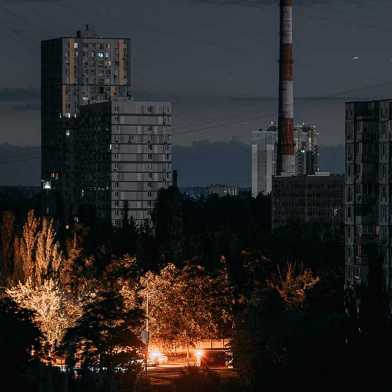
Researchers at ETH Zurich have been working with researchers from Ukraine and Germany to investigate how to rebuild Ukraine’s destroyed energy infrastructure based on renewable energy. They have determined that solar and wind energy would quickly deliver a distributed power supply system and prevent corruption.
Why people resort to lynching
News

Why do civilians take the law into their own hands? Using Mexico as an example, ETH researcher Enzo Nussio shows how it’s a combination of a weak state and strong local communities.
How can we tax electric cars without slowing down the electromobility transition?
- Zukunftsblog
- News
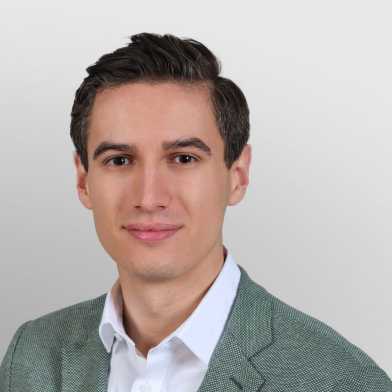
The federal government has plans to tax electric vehicles to secure funding for road infrastructure. However, a new levy could delay the switch to electromobility. Alessio Levis explains how this dilemma could be resolved.
Former Swiss Federal Chancellor Thurnherr appointed ETH Professor
News
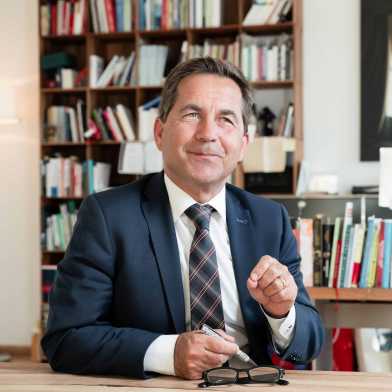
Walter Thurnherr was Chancellor and Chief of Staff of the Swiss Federal Council for eight years. With effect from October 2024, he will be a professor at ETH Zurich, where he will support the establishment of a School of Public Policy and contribute to a better understanding between academia and politics.
Crash course for new parliamentarians
News
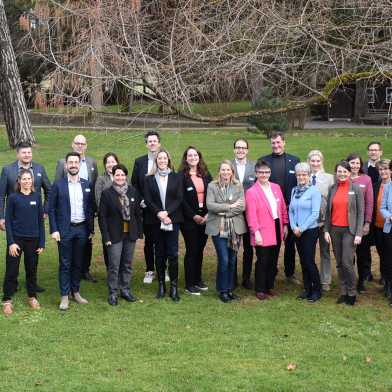
Newly elected members of the Swiss National Council are often confronted with a bewildering array of complex issues. ETH Zurich organised a special two-day seminar to equip them with scientific expertise in key policy areas.
“The days of à la carte cooperation are over”
News

Oliver Thränert was head of the think tank of the Center for Security Studies (CSS) at ETH Zurich for almost twelve years. On the occasion of his retirement, we spoke to him about the future challenges of Swiss security and defence policy.
Why we need to know more about individual carbon footprints
- News
- Zukunftsblog
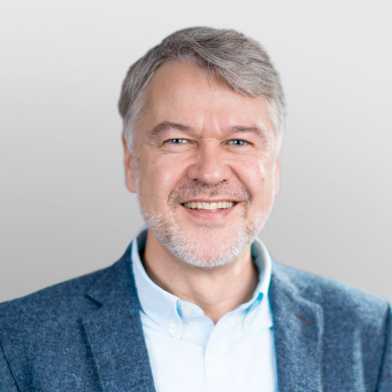
As Thomas Bernauer sees it, information on the impact that different segments of the population have on the climate is an essential ingredient in making climate policy measures fair and acceptable to the majority.
Favoured asylum seekers are young, female and fleeing war
Press release
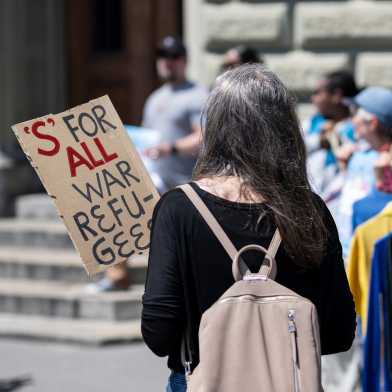
An international research group with ETH professor Dominik Hangartner has found that solidarity with refugees in Europe has remained stable, despite repeated refugee crises. While there is a tendency to view refugees from Ukraine more positively, this does not come at the expense of other groups.
Energy security in a climate-neutral Switzerland is possible
- News
- Homepage

Security of energy supply in a fossil-free Switzerland is feasible and affordable according to a new white paper from an expert group at the Energy Science Center. It will require increased production of renewables and efficient energy trading with neighbouring countries.
Switzerland wants a circular economy – but not to share products
- News
- Homepage

ETH Zurich political science researchers reveal that Swiss people are in favour of the circular economy and support measures to promote it. However, their personal willingness to contribute is low.
COP27: Climate finance needs more transparency
- News
- Zukunftsblog

The promise of industrialised countries to financially support emerging and developing countries in climate measures remains unfulfilled at the beginning of the climate conference in Egypt. Florian Egli explains what the states are negotiating at COP27 and what could help to alleviate the loss of trust.
Why conflict parties cease fighting
News
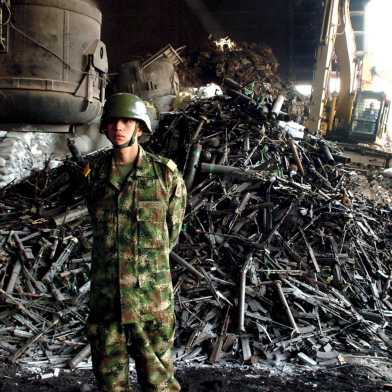
The path to peace usually leads through a ceasefire. In an international project, ETH Zurich researchers have shown the conditions under which parties to civil wars are willing to stop fighting – and why they decide to do so.
On environmental issues, the city-country divide is smaller than often assumed
- News
- Zukunftsblog
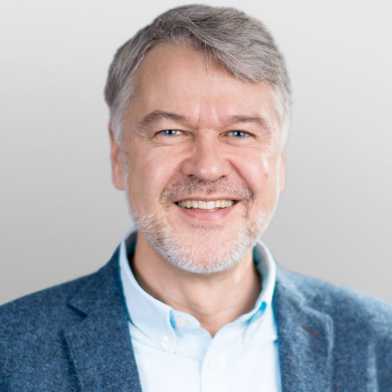
We like to perpetuate the idea of a divide in the attitudes of city dwellers and country people as part of debates on the environment, but it’s simply not the reality, explains Thomas Bernauer. In fact, there is little evidence of a fundamental urban-rural disconnect in Swiss environmental policy.
“Yes, but not like this!” – Why densification often lacks public acceptance
News
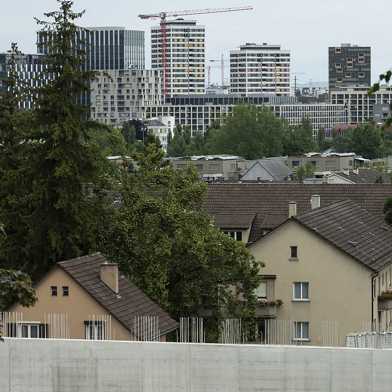
Densification is a fundamental principle of urban planning and development today. Nevertheless, it often encounters local resistance. A group of ETH researchers has now systematically investigated factors influencing public acceptance of densification, focusing on the canton of Zurich and six cities of global importance. One key factor: affordable housing.
From price shock to independence from fossil fuels
News
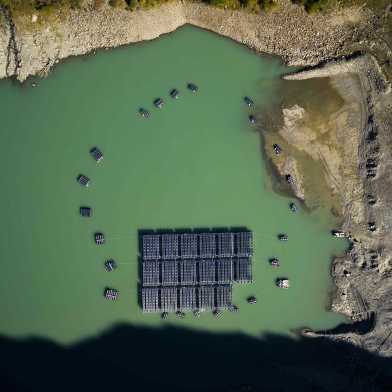
Oil and gas prices are currently on the rise, raising questions about the security of Switzerland’s energy supply. In a policy brief, researchers from the Energy Science Center at ETH Zurich have now shown what Switzerland can do to make its energy system independent of fossil fuels such as oil and natural gas.
War in Ukraine – back to the 19th century?
- News
- Zukunftsblog
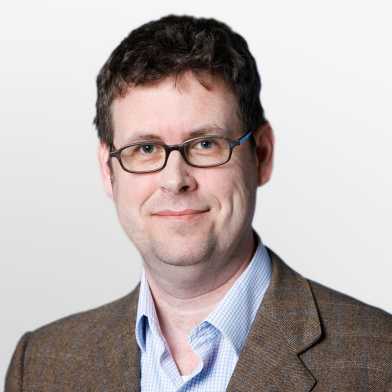
If nations are separated by national borders, the risk of civil war and interstate conflicts increases – as in the case of Ukraine. For this reason, Lars-Erik Cederman believes that sanctions should also be designed to have a deterrent effect on other nationalists.
“Neutrality is only one means among many”
News

The war in Ukraine poses some major challenges to Swiss security policy. Andreas Wenger, Director of the Center for Security Studies (CSS) at ETH Zurich, explains why we will need to broaden our understanding of defence in the future – and why international cooperation is becoming increasingly important.
"The EU won’t become a defense alliance like NATO"
News
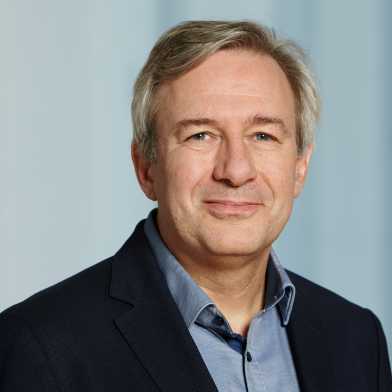
In an interview with ETH News, ETH Zurich Professor Frank Schimmelfennig analyses how the war in Ukraine is affecting the European Union and whether Ukraine is likely to be granted membership.
We Are ETH podcast: Martin Dahinden
News

Switzerland's former ambassador to the US Martin Dahinden made many exciting encounters during his diplomatic career, and ETH Zurich played a key role throughout.
Underestimated risks
Globe magazine

Climate change, pandemics and cyber attacks are risks that have long been in the public spotlight. But there are also risks that ETH researchers consider are still being given too little attention. Photographer Tina Sturzenegger has captured the scenarios on film.
How safe is our money?
Globe magazine
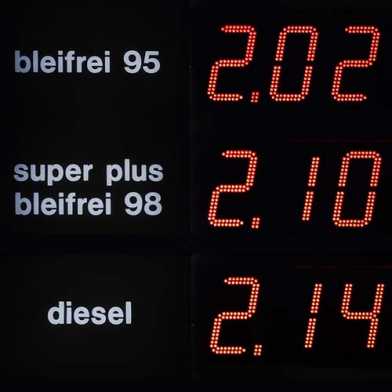
The war in Ukraine has fanned the flames of inflation. Is this merely a temporary shock – or the start of a new normal?
“Without risks, life would be unbearable.”
Globe magazine
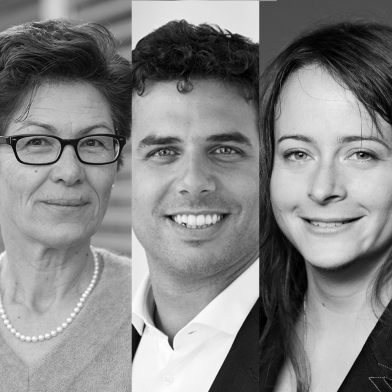
Russia’s invasion of Ukraine has suddenly shifted the debate on security policy. An interview for Globe magazine with ETH researchers Myriam Dunn Cavelty, Vally Koubi und Giovanni Sansavini on the subject of security and risk conducted in January has been overtaken by events and will therefore not go to print. We want to nevertheless make it available to you online. A lot of the questions and answers would be different today. Read it for yourself.
The energy turnaround won’t happen on its own
Zukunftsblog

The surge in gas and oil prices triggered by Russia’s invasion of Ukraine could help speed the energy transition. But high prices won’t be enough to ensure it succeeds; smart policies are still needed, writes Florian Egli.
“The West should quickly tighten the sanctions”
News
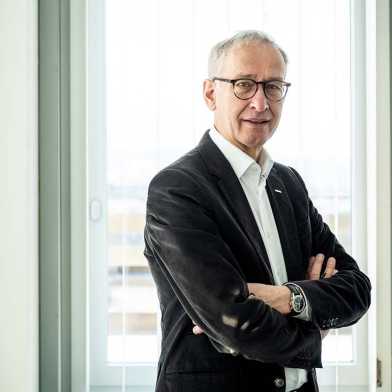
In an interview with ETH News, ETH Professor Emeritus and former State secretary Michael Ambühl outlines possible cornerstones of a diplomatic solution for the war in Ukraine.
How human and artificial intelligence can augment one another
News

Mennatallah El-Assady develops explainable AI programs that explain their own workings – and let users provide input. This can help analysts take a deep dive into political debate.
How we can adapt to climate change
Zukunftsblog
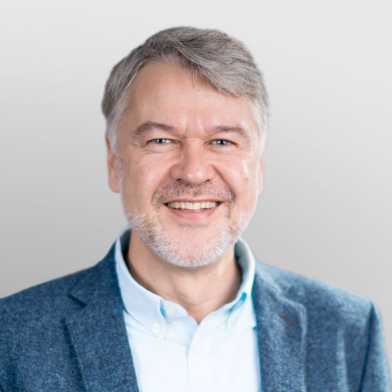
Thomas Bernauer contributed to the latest IPCC report on adaptation to climate change. He sees nature and good governance as our most important resources for coping with the effects of climate change.
Swiss population in favour of strict food waste rules
News
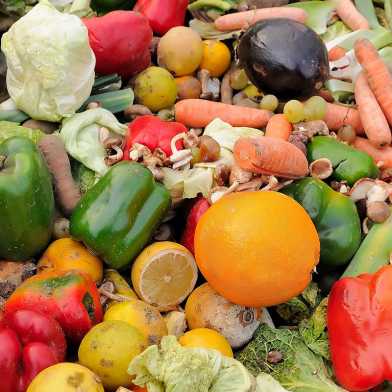
ETH researchers have shown that the Swiss population is willing to pay more to reduce food waste. It is in favour of government regulations that set strict reduction targets and ensure transparent monitoring of implementation.
Hydrogen for ground transportation and heating is a bad idea
Zukunftsblog
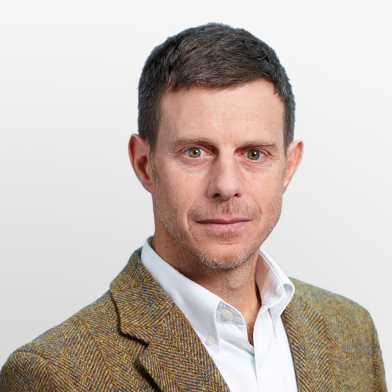
Ambitions to make hydrogen a key energy carrier for a climate friendly future are misguided, says Anthony Patt. Wherever possible, including ground transportation and heating, we should replace fossil fuels with the direct use of renewable electricity.
“We need a smart innovation policy”
News
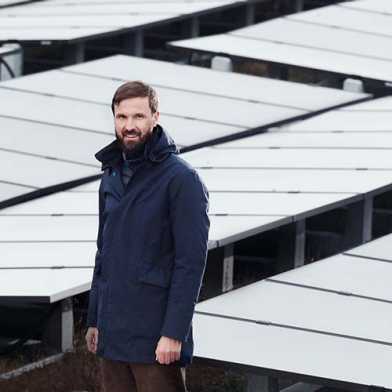
How can we decarbonise our economy by 2050? ETH Zurich Professor Tobias Schmidt argues that the answer lies in a radical technological transformation. He describes his journey from engineer to policy researcher – and his determination to build bridges between science and policy.
Swiss security policy in an unstable world
News
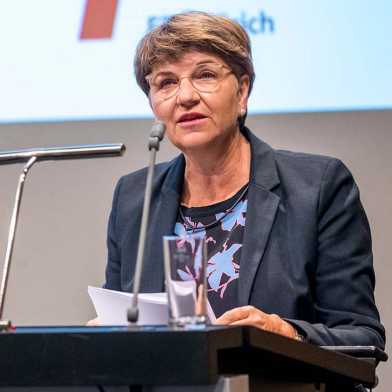
During her visit to ETH Zurich, Defence Minister Viola Amherd sketched a picture of an unstable, unpredictable world to which Swiss security policy must adapt. ETH Zurich and EPFL make an important contribution to the security of Switzerland by training specialist personnel and facilitating knowledge transfer.
A new Lab for Science in Diplomacy in Geneva
Press release
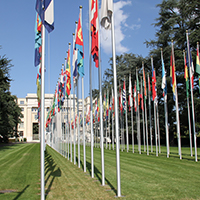
ETH Zurich and UNIGE establish an interdisciplinary unit dedicated to science in diplomacy in the heart of international Geneva. This joint lab will bring scientific insights and methods into diplomatic, international conflict resolution and help address the global challenges our societies are facing.
Switzerland and the EU – where to now?
News
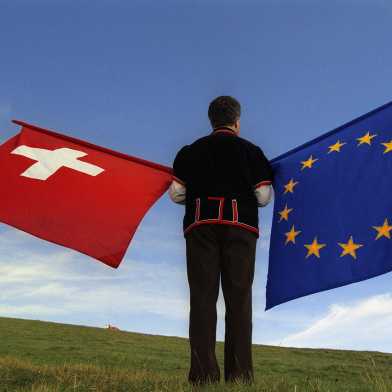
Following the termination of negotiations for a framework agreement, ETH researchers outline a three-stage plan for the further development of a constructive partnership between Switzerland and the European Union.
German-speaking Switzerland less critical of 5G expansion
News

The 5G wireless standard is a less polarising issue among the Swiss population than thought. According to a survey conducted by ETH researchers, the majority of people are in favour of 5G. However, a substantial portion of the population in the French-speaking region had concerns about electromagnetic radiation.
Two Advanced Grants for ETH
Press release
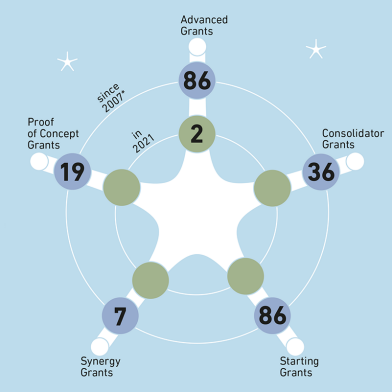
The European Research Council has decided on the recipients of its lucrative Advanced Grants. Researchers at ETH Zurich were awarded two grants – one in political science and the other in climate research. ETH is set to receive around CHF 6.6 million.
Power-sharing and its side effects
News

The participation of ethnic minorities in the government can decide between war and peace. ETH postdoc Andreas Juon researches how different forms of power-sharing affect the stability and quality of political systems.
A call for charging points at home
Zukunftsblog
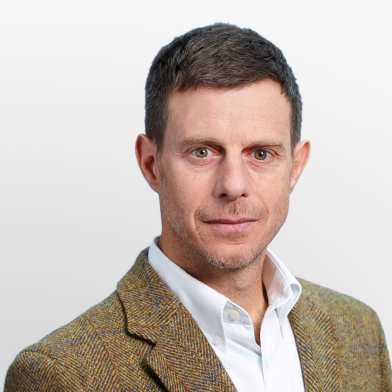
For Switzerland to become climate neutral, there’s no way around electric mobility. But to get e-cars going, the public must push for charging stations where people live, argues Anthony Patt.
How clicks on a job platform can reveal bias
News
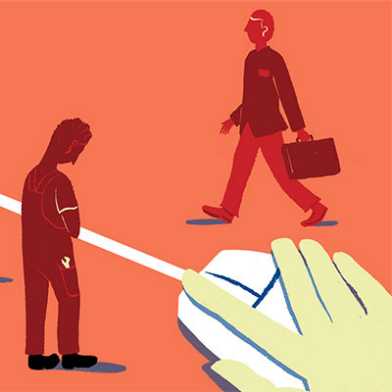
Scientists at ETH Zurich have leveraged big data from recruitment platforms and machine learning to study hiring discrimination. They show that discrimination against immigrants depends, among other things, on the time of day; and that both men and women face discrimination.
The empire strikes back
Zukunftsblog
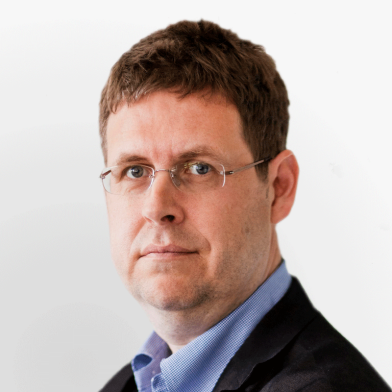
In recent years, nationalist leaders have staked claims on lost territories in order to restore the glory of former empires. Lars-Erik Cederman believes that this rise in revanchist nationalism poses a threat to geopolitical stability.
We’ve got a lot on our plate
Zukunftsblog

There is little to suggest we’ll be eating less meat any time soon. In the last post of 2020, Lukas Fesenfeld explains why a sustainable food supply system is still possible.
To cut food waste, we may need to pay more for what we eat
News
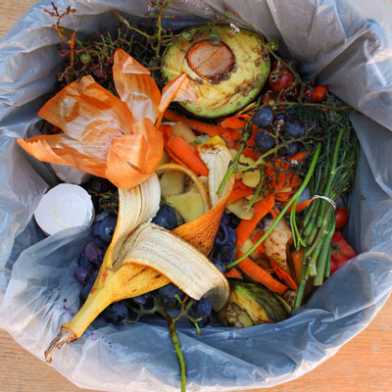
How can we reduce food waste? Although the Swiss population are aware of the problem, they misjudge where most food waste is generated, ETH political scientists conclude. The general public support cutting food waste, even if this means food will cost more.
Who makes the final decision?
Globe magazine

Protecting citizens in the face of disaster often requires far-reaching decisions to be made. Any assistance is welcome – including from AI.
Using social networks to hasten a switchover
Zukunftsblog

When making decisions, we’re often influenced by our social environment. This can be used in a targeted way to encourage people to adopt a healthier, cleaner lifestyle, writes Suchita Srinivasan.
Preparing for the legislature
News
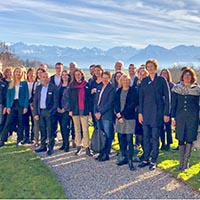
Separation of powers, foreign policy, economic policy and climate change – at a two-day event in the Bern region, ETH imparted expertise to newly elected parliamentarians.
From rocket builders to tree planters
News
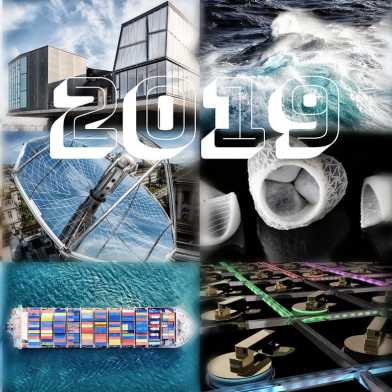
The year 2019 has certainly been a busy one at ETH. A new president took office and the second Sci-Tech Oscar was awarded, along with other major prizes, but there were also plenty of inventions and topics for discussion.
Better integration thanks to naturalization
News
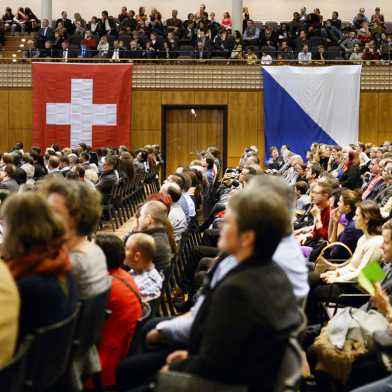
Becoming a Swiss citizen promotes immigrants’ integration into Swiss society. After naturalizing, new citizens’ annual earnings increased by an average of CHF 5,000 compared to their unnaturalized peers. This boost benefits the new citizens, the state, and society as a whole.
Putting research to the real-world test
News

Dominik Hangartner, a political scientist at ETH Zurich, has received one of Switzerland’s most prestigious science awards. The National Latsis Prize has recognised the quality of Hangartner’s research on migration and its importance for public policy. We sat down with Hangartner to find out what drives him and what he finds so exciting about turning research into concrete policies.
How carbon taxes can succeed
News

The political leeway for carbon taxes is greater than commonly assumed. Political scientists at ETH have shown how carbon taxes could find acceptance in Germany and the US. What matters most is the intended use of the tax revenues and that all industrialised nations implement the taxes.
Partnerships to protect the forest
Zukunftsblog

Amazonian fires are started by humans and they can be stopped by humans – with partnerships, more investments in forest conservation and sustainable agriculture, argues Rachael Garrett.
Interest rates are a decisive factor for competitive renewables
News

Renewable energy has become competitive – and one often-overlooked reason is the reduced cost of financing. Researchers from ETH Zurich and the Potsdam Institute for Climate Impact Research (PIK) have modelled different scenarios in order to investigate the impact of rising interest rates on renewable energy.
What does the public think about corporate responsibility?
News

What is the public’s opinion when it comes to the responsibility of Swiss companies abroad? ETH researchers have investigated this question and are able to show that there is a great deal of support for the so-called Responsible Business Initiative.
Small steps to peace
News
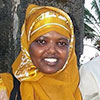
Many small, local steps may lead more sustainably to peace than big dreams of the perfect state. This principle lies at the heart of an innovative approach to conflict mediation developed by a Kenyan mediator and an ETH researcher.
How important is reciprocity for climate policy?
Zukunftsblog

The Paris Agreement relies on voluntary and therefore weak commitments. But contrary to popular belief, if some countries “free-ride”, this does not undermine the commitment of others, writes Thomas Bernauer.
Why China is not about to catch up with US military technology just yet
News

Is China about to catch up with the US, the world’s leading military and geopolitical power? Researchers at ETH’s Center for Security Studies and NATO’s Defense College say no. The growing complexity of military technology makes it difficult for modern weapon systems to be imitated.
A balancing mind
News
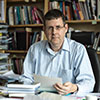
ETH Zurich peace and conflict researcher Lars-Erik Cederman has won Switzerland’s biggest science award for 2018, the Marcel Benoist Prize. In his research he studies how the fair distribution of power and resources can reduce the risk of ethnic conflicts. As both a person and researcher, a balanced nature is one of his defining features.
The water war myth
Zukunftsblog
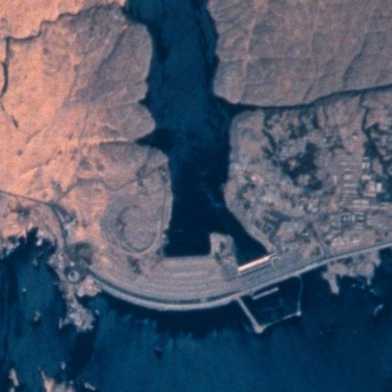
Humans need water. If it is in short supply, conflicts can arise. Contrary to popular belief, however, these almost never lead to war, but rather to cooperation, writes Thomas Bernauer.
China’s rise as a new AI superpower
Globe magazine

China intends to be the world leader in artificial intelligence (AI) by 2030. As part of her doctoral thesis, political scientist Sophie-Charlotte Fischer is analysing the current Chinese upswing in AI.
Conflicting goals
Zukunftsblog
Safeguarding both humanitarian traditions and the interests of the domestic pharmaceutical industry creates tension in the Swiss health-related foreign policy, says Ursula Jasper.
A shifting balance of power in world politics
News
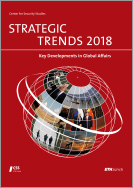
Strategic Trends 2018: ETH Zurich’s Center for Security Studies has published its annual analysis of key trends in world politics, such as the roles of the US, China and Russia as superpowers.
How Climate Change Affects Migration
Zukunftsblog
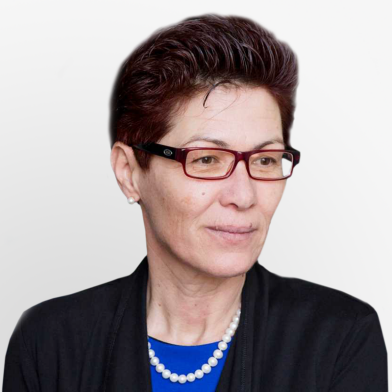
Will climate change, as often claimed, indeed result in large-scale human migration, notably from poor to rich countries? Vally Koubi and Thomas Bernauer answer.
Algorithm increases employment opportunities for refugees
Press release

A data-driven approach could help increase employment levels for asylum seekers in Switzerland from 15 to 26 percent. Social scientists from Switzerland and the U.S., in collaboration with ETH’s Public Policy Group, reached this conclusion in the journal Science.
Raising awareness of the risks of natural sciences research
News
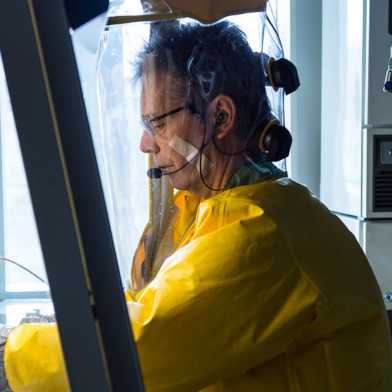
New research findings from biology and chemistry are a blessing for the world of medicine. However, if they are misused for military purposes, they can reveal a darker side. How to deal with the “dual-use dilemma”? This was the subject of a course aimed specifically at biology and chemistry students.
Migration model for the UK
News
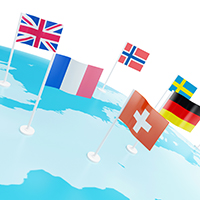
ETH Zurich researchers developed a feasible approach for the migration issue in post-Brexit negotiations between the UK and EU. An existing mechanism in Switzerland’s bilateral treaties served as inspiration.
Technological innovation “trumps” politics
Zukunftsblog
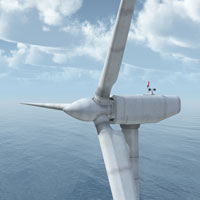
Technological innovation, often induced by national and sub-national policies, is a key driver of global climate and energy policy ambition and action. Donald Trump’s decision to pull out of the Paris Agreement will hardly affect this trend.
Can conflict be predicted?
News
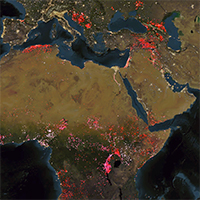
Modern data science techniques can also be useful in conflict research. However, in an essay published in the journal Science, Lars-Erik Cederman, Professor of International Conflict Research at ETH Zurich, suggests that certain expectations regarding the predictability of armed conflict are unrealistic. ETH News caught up with him for a chat.
A humanities perspective on natural sciences and technology
News

‘Science in Perspective’ is the name of a new study programme at ETH Zurich that will teach students of natural sciences and engineering the overarching normative, historical and cultural perspectives of their subject.
New centre for public governance
News

ETH Zurich is establishing a new centre specialising in public governance. The intention is to fill the gap in the educational programmes currently on offer, and to bolster ETH’s research activity in this sphere.
Everyone sees the world through their own prism
News
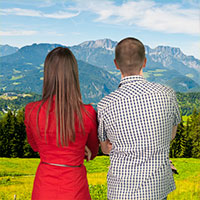
How can public opinion be influenced in favour of climate protection? ETH political scientist Thomas Bernauer explored the question in a recent study. His sobering answer is that there is no magic formula.
Well prepared for the first session
News
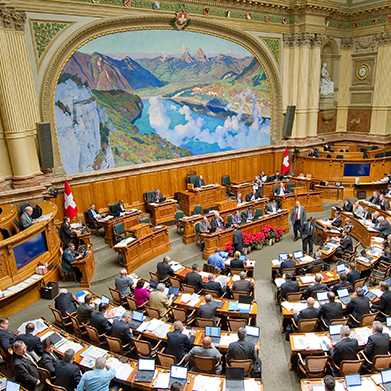
A working group headed by Michael Ambühl, Professor of Negotiation at ETH Zurich, held an introductory event this week for 14 of the newly elected members of the federal parliament from the different parties and cantons.
The charm of the recent past
News
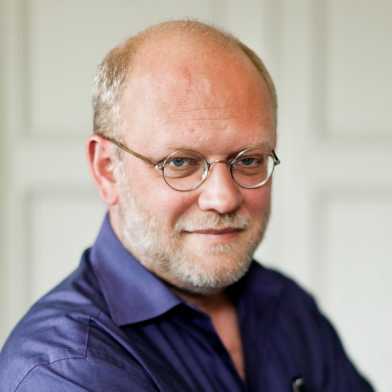
Monte Verità, or the "Mountain of Truth", was recently the setting for an international gathering of historians, aimed at finding new patterns of interpretation for the period between 1980 and 2010. David Gugerli, a Professor of History of Technology at ETH and conference co-organiser, discusses the bold conference format and key findings from the meeting.
6 professors at ETH Zurich appointed
News

At its meeting of 8/9 July 2015, the ETH Board appointed six professors at ETH Zurich in accordance with the application submitted by ETH Zurich President Lino Guzzella.
Research with a social relevance
News
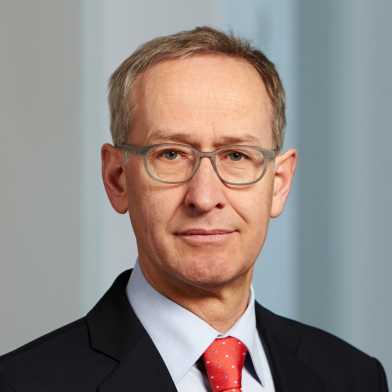
Michael Ambühl, Professor of Negotiation and Conflict Management, has just published his much discussed proposal on the implementation of the mass immigration initiative in the Swiss Political Science Review. ETH News spoke to him about the relationship between research and politics.
A laboratory for the real world
News

The new MSc programme in Science, Technology and Policy offered at ETH Zurich aims to equip natural scientists, engineers and architects with the necessary skills in order to provide academic support for and help shape political, economic and social decision-making processes.
Afrika: Vom hoffnungslosen Kontinent zum Hoffnungsträger
Zukunftsblog

Afrika wächst und wandelt sich. Oft ist eine Entwicklung nach westlichem Vorbild oberstes Ziel. Doch gibt es nicht sinnvollere Wege? Diese Frage bewegte mich während eines mehrjährigen Aufenthalts in Ostafrika. Seither ist mir der Kontinent eine Quelle der Inspiration für nachhaltiges Forschen und Handeln.